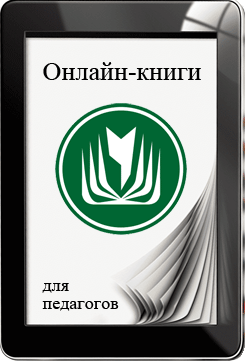План-конспект урока в 4 классе
План-конспект урока в 4 классе
Учитель: Кирияк Ю.Э.
Урок по английскому языку к учебнику 4 класса. Авторы: Лапицкая Л.М., Севрюкова Т.Ю., Калишевич А.И.
Практическая цель: совершенствовать навыки чтения
Развивающая цель: развивать внимание, память, логическое мышление.
Образовательная цель: расширять словарный запас учащихся по теме, расширять знания учащихся об устройстве жилья.
Воспитательная цель: развивать умения слышать и слушать друг друга.
Оснащение урока: учебное пособие, мультимедийное обеспечение, картинки с предметами мебели и комнатами для игры “Memory game”, смешные рожицы для рефлексии
Ход урока:
-
Организационный момент.
Задача этапа: настраивание учащихся на организованную работу.
A teacher greets students and asks about their mood. Possible answers are shown on the slide (Slide 2). Students answer their teacher’s questions and ask her about her mood. The teacher complicates the answers by adding the sentences to the phrases.
T: How are you today?
P: I’m happy. And how are you?
T: I’m happy too because I’ve got a new flat. My flat is big. Thank you.
T: I’m tip-top because there are 4 rooms in my new flat.
T: I’m fine because I’ve got a puppy. It’s nice. Thank you.
T: I’m happy because my puppy lives with me in my new flat.
-
Фонетическая зарядка
Задача этапа: совершенствование слухо-произносительных навыков.
The teacher draws the students’ attention to the poem on the board (Slide 3). Students look for the sound [au] in the poem. They recollect the words with this sound (blouse, brown, cloud, cow, and house), repeat the words and the poem after the teacher (Slide 4). Each student reads the poem.
I’m a little mouse.
I live in a house.
My friend is Pat.
She lives in a flat.
-
Целеполагание
Задача этапа: предъявление целей и задач урока.
The teacher introduces the topic and aims of the lesson.
T: Which words from the poem in your opinion belong to our topic “My House”? Right you are. Today we will continue talking about our houses and flats.
-
Речевая зарядка
Задача этапа: совершенствование навыков говорения.
The faces of children and the examples of the sentences are shown on the slide (Slide 5). The teacher asks questions.
T: Liz and Mike want to tell us about the place they live in.
This is Mike. Mike says: “I live in a flat”.
This is Liz. Liz says: “I live in a house”.
The children want to know: “Do you live in a flat or in a house?”
T: Mike says: “My flat is small”.
Liz says: “My house is big”.
The children want to know: “Is your flat/house big or small?”
T: Mike says: “There are two rooms in my flat”.
Liz says: “There are four rooms in my house”.
The children want to know: “How many rooms are there in your flat/house?”
-
Предтекстовый этап
Задача этапа: снятие лексических трудностей.
The teacher informs the students about the letter Liz has sent. To be able to read the letter the students have to do some tasks.
Task 1.
T: Maggie has sent a letter to us. She says that she has a new house. To read the letter we need to revise the words. Look at the pictures and repeat the words after me (Slide 6).
Task 2.
T: Now say what there is in the picture. Use the construction: There is a…
Task 3.
Memory game. The pictures are placed face down. Students take turns to pick up a card and then search for its partner. If they keep the pair, they have another turn. If not, they lay the cards face down where they found them, and the next player has a turn.
T: Maggie doesn’t know where to put her furniture. Let’s help her. Please, help Maggie to learn where in a flat the items of furniture are. You are to find the pairs.
Example: bed – bedroom, table – kitchen, bookcase – living-room.
Task 4.
The teacher shows a large picture (Slide 7) containing many different items of furniture for a short period of time (30 seconds). The learners have to remember as many words as they can.
Task 5.
The learners are inquired to put the words into some kind of order, according to their preference. The task must be done in writing.
T: If you have a chance to buy only one piece of furniture a week. Put the words in the order you would buy them.
-
Разминка
Задача этапа: снятие усталости и напряжения.
Students stand in a circle. They clap their hands on their thighs three times and then both hands together. Students are to shout out a word from a selected lexical set to every fourth beat. Players who say nothing or repeat the words are “out”.
T: I choose any room and you are to say the pieces of furniture we can find in it. Let’s do it quickly and maintain a four-beat rhythm.
Example:
Kitchen: fridge, table, cooker, cupboard…
Living-room: armchair, carpet, television…
-
Текстовый этап
Задача этапа: чтение текста и контроль понимания прочитанного.
T: Read about Liz’s house and answer. Which is Liza’s room?
The students read the text in their books. After reading they are to match the rooms mentioned in the text with the pictures.
-
Послетекстовый этап.
Задача этапа: совершенствование навыков говорения.
The teacher builds up a spider gram using student’s answers (Slide 8).
Where does Liz live?
How many rooms are there in Liz’s house?
Is there a table in Liz’s room?
Is there a wardrobe in Liz’s room?
Is there a bookcase in Liz’s room?
Is there a carpet in Liz’s room?
Using the spider gram students tell about Liz’s house. One person starts another one continues.
-
Рефлексия
Задача этапа: формирование у учащихся способности к самооценке.
You can see 2 houses on the board. One of them is happy because it likes the lesson. The other one is sad, it doesn’t like the lesson. You have funny faces on your desks. Put them in a house that coincides with your mood. (Slide 9)
- Международный вебинар «Волонтёрство и новые воспитательные практики в школе»
- Вебинар «Речевое развитие детей дошкольного возраста в разных видах деятельности (ФГОС ДО)»
- Международный вебинар «Обучение грамоте старших дошкольников с помощью развивающих игр В. В. Воскобовича: практика реализации ФГОС и ФОП ДО»
- Международный вебинар «Современные методы нейрореабилитации и нейрокоррекции. Нейропсихологическая коррекция в системе комплексной реабилитации. Общий анализ принципов коррекционного и восстановительного обучения в нейродефектологии»
- Вебинар «Современные технологии речевого развития детей дошкольного возраста: синквейн, мнемотехника, ТРИЗ, РТВ»
- Современные тенденции развития шахматного образования в РФ. Научные идеи и концепции обучения шахматной игре






